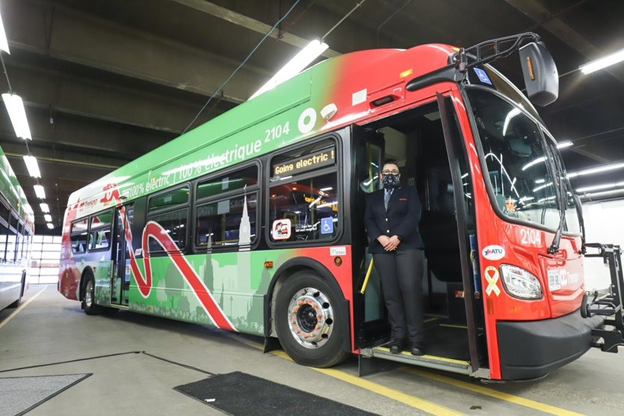Throwing Rural Money At OC Transpo Won’t Help Transit Problem
By David Brown, Rideau-Jock Councillor
With OC Transpo conducting a route review, City Council is debating public transit. It’s an important issue – after Community Services, OC Transpo represents the second largest funding portfolio of the City. It is a vital service for many residents.
The problem is that, even setting aside the issues of our unreliable LRT, the situation over at OC Transpo looks quite bad. Some residents have reached out to express their frustration with the system, and I wanted to take a moment to share what the issues at hand are, and why I believe more substantive, structural changes are needed.
The first major problem is the simple fact that the system lacks sufficient ridership to support the current model. This is largely a consequence of the pandemic and civil servants working from home more frequently. Without the federal public service returning to work in the office full time, the level of ridership needed to fund the system will not materialize.
This is because OC Transpo is intended to be funded 50% by tax levies and 50% by fares. Currently, it is funded about 70% from taxes and 30% from fares due to decreased ridership. During the pandemic, funding shortfalls were covered by the federal and provincial governments. However, that funding is no longer available, yet OC Transpo is still expected to run a major deficit once again – a deficit of close to $40 million dollars.
Another challenge we face is the sheer size of the municipality. Calgary, Montreal, Vancouver, Edmonton and Toronto all fit within Ottawa’s boundaries and we still would have space to spare. Our ward alone is larger than the City of Toronto, and Rural Ottawa is four times larger than urban Ottawa. Ward 21’s geography is larger than all the urban and suburban parts of Ottawa combined.
The challenges of budgeting and geography have created an unfair situation for our communities. Residents in our ward contribute more than $2.75 million in transit taxes annually. Additionally, roughly a third of all development charges in rural Ottawa go toward funding transit. However, the cost of running transit to and from Ward 21 costs OC Transpo $490,000, and the two most well-used routes in the Ward only attract about 75 average daily users when their riderships are combined.
That is to say, our ward pays more than its fair share to support the transit network City-wide despite half of the ward having limited commuter routes and the other half having no access at all. And those who can access the system choose not to use it.
Given that OC Transpo received more tax funding in 2023 than it has in any previous year of operation, throwing more money at an inefficient service won’t solve the issue. We know that because that is essentially what the City is already doing.
There is no municipal transit service in the world, irrespective of tax-rate funded service, that provides effective service to 2,800 square kilometers of area of which 80% is rural. Likewise, residents in rural Ottawa should not be asked to pay more for services that they do not and will not receive; simply demanding more money from residents who do not receive services is not reasonable.
We need to face facts. Transit is in bad shape, but constantly bailing out a system that needs a complete overhaul is not helpful. The old model isn’t what Ottawa needs anymore, and upper levels of government are unlikely subsidizing it.
To increase efficiency, I am asking City staff to consider returning rural Ottawa to a private transit model, similar to the one we had at amalgamation. This would reduce cars on the road, provide more options for residents, and may allow for a reduction in the tax burden. Every village around Ottawa has private bus services that bring residents into Ottawa; our 26 rural villages should do the same.
Ultimately, urban Ottawa needs transit, and rural Ottawa, despite paying into the system, does not benefit from the services that OC Transpo provides. Any proposal that simply accepts this amalgamated formula is doomed to continue to fail. New solutions are needed, and in my view, private options provide the best option for taxpayers and rural transit users alike.






